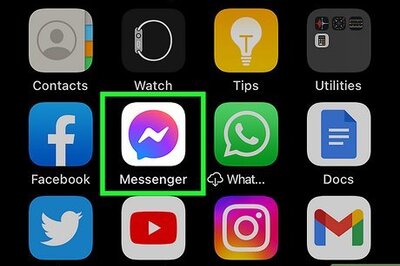
views
Far from a snub against India, Chinese President Xi Jinping giving the G20 summit a miss is about his own insecurities and misgivings. Xi Jinping simply does not seem to catch a break from being isolated on the world stage. He is set to skip not only the G20 summit in New Delhi but also the ASEAN-India and East Asia summits in Jakarta, Indonesia. In fact, Xi has stayed home far longer than he ever has since the Covid pandemic. The BRICS summit was an exception this year, making his South Africa visit in August the second international trip of the year after he visited Moscow to meet Russian President Vladimir Putin.
Since the beginning of the Covid pandemic and a brutal clash between Indian and Chinese forces in the Galwan Valley at the border, Xi Jinping remained grounded for more than 1,000 days at a stretch. He broke this self-embargo only in 2022 when he visited Kazakhstan, Uzbekistan, Saudi Arabia and even Indonesia for the G20 summit in Bali.
In 2023, however, Xi has retreated without any Covid-related obligations. Given the global backlash against China, the Chinese leader is finding it difficult to keep the ignition on when it comes to international diplomacy. BRICS summit was a relatively safe space, but the G20 does not extend that comfort. Not only was the summit in New Delhi but there was little chance of a one-to-one bilateral meeting with Prime Minister Narendra Modi, as it had become clear from their brief exchange in Johannesburg, where PM Modi stressed on resolving the border issue before all else.
Moreover, it was also not clear whether US President Biden and Xi would meet on the sidelines of G20. Without Putin attending, China had the opportunity to de-hyphenate itself and reclaim the pre-pandemic stature it had attained. However, Xi has checked out from both the G20 and ASEAN summits.
The ASEAN summit was particularly a no-go for Xi from the start since China’s unfounded claim on the South China Sea has rubbed almost every ASEAN nation the wrong way. ASEAN often includes a reference to the United Nations Convention on the Law of the Sea (UNCLOS), which China is in violation of, with the assertion of its territorial claims. This time around, China made sure to release an ‘updated’ version of its map but it may have not seen a chorus of direct opposition coming from Malaysia, Vietnam, Indonesia and the Philippines, following India and Taiwan.
This might all just be China’s belligerent little way to save face as Xi gives a hot season in international diplomacy a miss. A vulnerable Xi may have expected to find himself rather snubbed and secluded, which would have further damaged his image domestically, at a time when economic woes and political instability threatened his position in the Chinese Communist Party (CCP).
Economic Woes Cast Shadow on Xi
Amid an unrelenting economic downturn, a few articles critical of Xi Jinping’s policies have come up in China, pointing to strengthening factionalism in the CCP.
Moreover, involving the removal of senior Commanders of the People’s Liberation Army (PLA) Rocket Force, the speeches by Xi Jinping and security tsar Chen Wenqing during their visits to Xinjiang and Gansu, respectively, which included numerous references to “stability” and the disappearance of former Foreign Minister Qin Gang, there are additional factors to consider. Unless there are serious health issues, it might be that Xi Jinping is required to stay in China due to the ongoing political instability and infighting within the CCP.
Xi’s Isolation Vs Modi’s Diplomatic Power
Contrast Xi’s isolation with PM Modi’s diplomatic prowess. The Indian prime minister and India as a whole are fervently engaged in diplomacy with the G20 presidency taking centre-stage, with the summit planned in New Delhi being just a week away. PM Modi has made nine official visits abroad, reflecting how India’s diplomatic machinery is in full swing. First, it was Japan for the G7 and Quad meetings, then it was Papua New Guinea and Australia. A major highlight of this year was PM Modi’s state visit to the United States where he met President Joe Biden at the White House amid lots of pomp and glory. This was immediately followed by a visit to Egypt. In July, PM Modi visited France and attended the Bastille Day celebrations with President Macron, following which he made a brief visit to the UAE. In August, the prime minister was at the BRICS summit after which he made the first-ever visit, of an Indian prime minister in 40 years, to Greece.
Against the backdrop of robust preparations for the G20 summit, where India plans to represent the voice of the Global South, unlike Chinese President Xi Jinping, PM Modi will also be visiting Indonesia for the ASEAN and East Asia summits on September 6. Notably, Prime Minister Modi has found time out of his schedule to engage with his ASEAN counterparts just days before the G20 summit commences in New Delhi.
With India’s economy having grown at 7.8 per cent in the first quarter of this year, and the global outlook looking positive further into 2024, its global stature is also on the rise. India’s highly slick and efficient diplomatic machinery complements its rise and is a true reflection of the nation’s emergence as a prominent global power on the international stage.
Views expressed in the above piece are personal and solely that of the author. They do not necessarily reflect News18’s views.



















Comments
0 comment